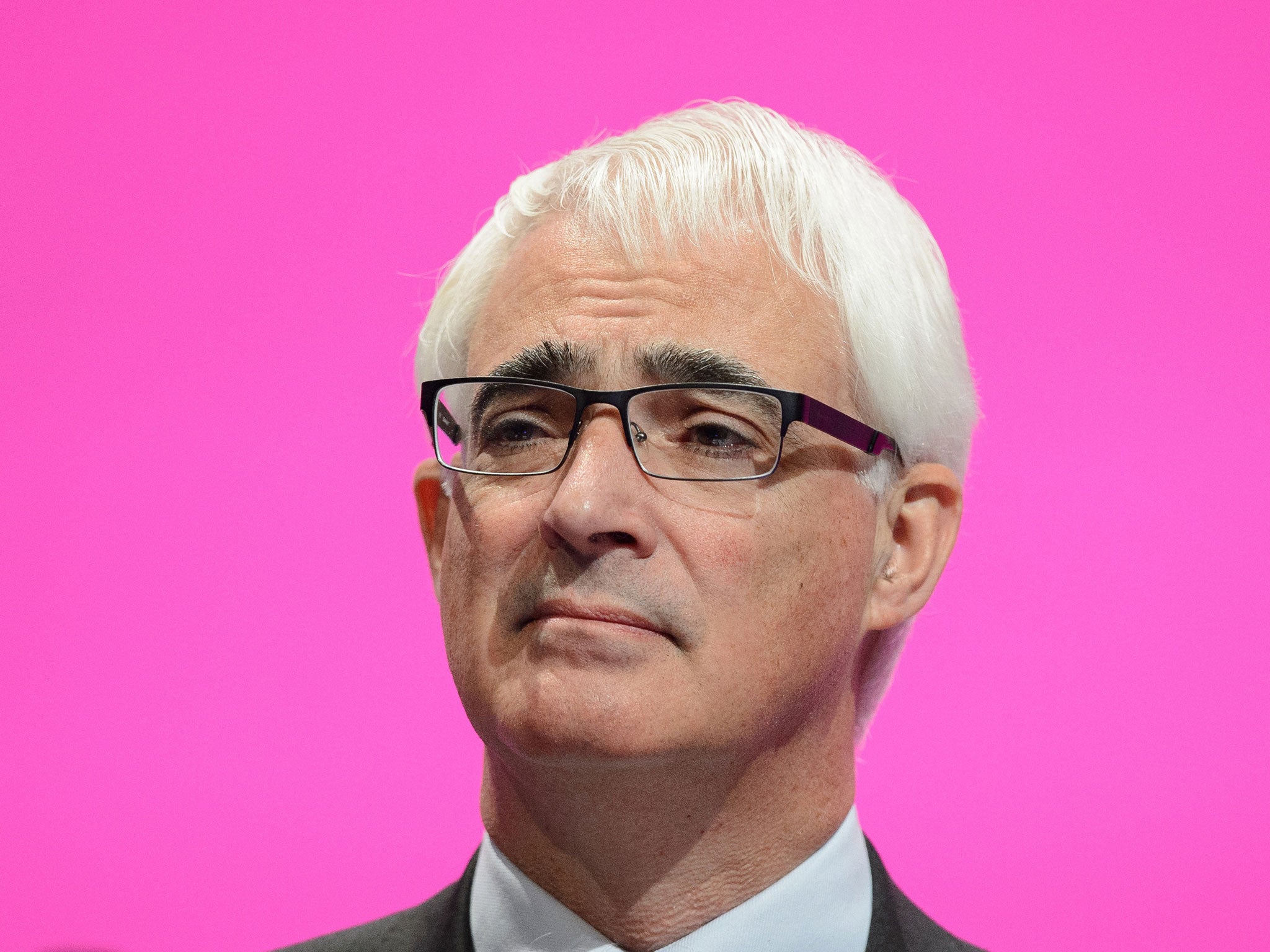Bank of England issues stark Brexit warning as former Chancellor warns of 'dark clouds'
Bank says looming referendum is already having a negative effect on the economy

Your support helps us to tell the story
From reproductive rights to climate change to Big Tech, The Independent is on the ground when the story is developing. Whether it's investigating the financials of Elon Musk's pro-Trump PAC or producing our latest documentary, 'The A Word', which shines a light on the American women fighting for reproductive rights, we know how important it is to parse out the facts from the messaging.
At such a critical moment in US history, we need reporters on the ground. Your donation allows us to keep sending journalists to speak to both sides of the story.
The Independent is trusted by Americans across the entire political spectrum. And unlike many other quality news outlets, we choose not to lock Americans out of our reporting and analysis with paywalls. We believe quality journalism should be available to everyone, paid for by those who can afford it.
Your support makes all the difference.The Bank of England has issued its starkest warning yet over the consequences of Brexit for the British economy, stating that the country would be likely to face a long period of uncertainty if it left the EU, that would dampen demand and impact on UK assets.
Minutes from the latest meeting of the Bank’s Monetary Policy Committee also state that the looming referendum is already having a dampening effect on the economy, noting that many major capital spending decisions and property transactions were being delayed, pending the outcome of the vote.
Its warning, which was roundly criticised by the Leave campaign, came as the former Labour Chancellor Alistair Darling, who presided over the UK’s response to the 2008 global financial crisis, said that “dark clouds” were again “gathering on our horizon” and slammed Brexit campaigners for “turning a blind eye to credible warnings of economic disaster”.
In its minutes, the Bank of England said that a vote to leave the EU would “result in an extended period of uncertainty about the economic outlook including about the prospects for export growth”.
“This uncertainty would be likely to push down on demand in the short run…(and) have significant implications for asset prices, in particular the exchange rate.”
In a further warning, the Lloyds Banking Group became the first commercial bank to speak out officially on the referendum, stating that a vote to leave would cause short-term “economic uncertainty”.
However, the Bank’s statement added that the decision was “a matter for the UK electorate” and that the long-term impact was “unclear” because of uncertainty over the UK’s future relationship with Europe in the event of Brexit.
The trio of economic warnings will be welcomed by the Government, which has made financial stability a key pillar of its argument for backing a Remain vote.
Brexit campaigners have branded the approach “Project Fear”. Conservative MP Philip Davies accused Bank of England governor Mark Carney of “diminishing himself” with the Bank’s latest statement.
And John Longworth, chairman of the official campaign group Vote Leave’s business council, criticised Lloyds for its former support for the UK joining the Euro, 20 years ago.
“They were wrong then and they are wrong now,” he said. “What right do multinationals have to lecture us? The EU may work for the handful of large multinational banks that can afford the reams of red tape, but it will be the dynamic SMEs that will benefit if we Vote Leave on 23 June.”
However, in his speech on the EU, Mr Darling, who chaired the Better Together campaign during the Scottish Referendum, condemned the Brexit camp for failing to explain what form a new deal with the EU would take, branding their campaign “Project Fantasy”.
“They can’t guarantee trade without tariffs, which would push prices up. They can’t guarantee investors won’t leave Britain, risking jobs. They can’t guarantee our service sector will have free access to Europe, hitting growth…They are offering a fantasy future where we keep all the benefits of being in Europe without being part of the single market,” he said.
With the official EU campaigning period beginning today economics and security remain the two key battlegrounds.
Downing Street, which has argued that remaining in the EU makes Britain safer, welcomed a vote in the European Parliament which will pave the way for the bloc’s 28 member states to share airline passenger name records data, to assist in the fight against international crime and terrorism.
The Prime Minister’s spokesperson said: “This is something we have been calling for for a long time, particularly in wake of the rise in terror attacks that we have seen.
“Today’s vote shows that Britain can benefit and be safer staying in a reformed EU.”
Downing Street insisted that were no guarantees that Britain would be able to gain access to the EU-wide data in the event of Brexit.
Join our commenting forum
Join thought-provoking conversations, follow other Independent readers and see their replies
Comments